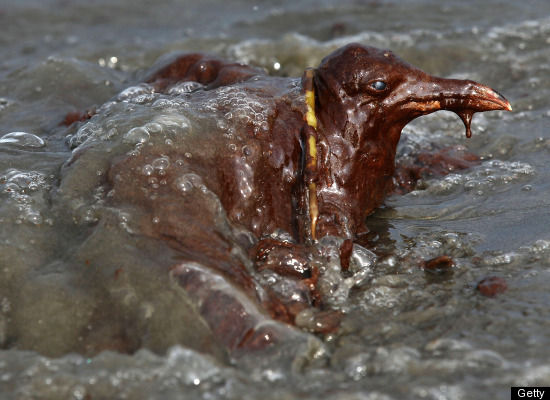In reading The Houston Chronicle a headline jumped out at me which I thought at first glance was the most idiotic idea ever published by a reputedly rational human being. The headline stated, “Let markets regulate offshore oil industry.” My first thought about this headline was that letting the oil industry regulate environmental matters would be like allowing drug cartels to regulate law enforcement related to drugs.
On closer examination of the article I actually found a couple of ideas worthy of consideration. The theme of the article was that government had precious little expertise in trying to regulate offshore drilling. In an effort to make up for lack of knowledge and up-to-date technology, the government would over regulate and thereby stifle the industry, ultimately driving prices up at the pump.
Two decent ideas were central to the writer’s proposal. The current artificial restrictions limiting liability on the open seas should be adjusted to more realistically reflect the times. Congress, some years back, artificially limited liability for marine disasters including offshore floating rigs to 75 million dollars. This limitation is based on the Oil Pollution Act of 1990. Limitation of any kind of disaster on the seas has its roots in the old admiralty law of limiting liability of ships to the value of the ship and its cargo.
Obviously, limiting the liability of a multi-billion dollar drilling operation at sea only to the value of the hardware is a far different creature than limiting the liability of a sailing sloop laden with rum from the Caribbean.
The drilling industry and its defenders are quick to point out there have been over 36,000 deep wells drilled in the Gulf of Mexico and only two major incidents. They point out that although the risks are great, the probability is only slight. [Picture at left from
 The issue of high risk and low probability could be applied to atomic warfare which the world has chosen to treat in a vastly different manner. Even though it is not very likely we will have nuclear explosions throughout the world, world opinion has caused nations to band together with nuclear ban treaties and in joint efforts to stop the proliferation of atomic weapons which could lead to a remote possibility of such a mess.
The issue of high risk and low probability could be applied to atomic warfare which the world has chosen to treat in a vastly different manner. Even though it is not very likely we will have nuclear explosions throughout the world, world opinion has caused nations to band together with nuclear ban treaties and in joint efforts to stop the proliferation of atomic weapons which could lead to a remote possibility of such a mess. The writer of The Chronicle article goes on to argue that only the industry has the expertise to control and figure out the safest methods of operation. Industry, facing greater liability, would seek insurance to cover that liability; and the insurance companies would in fact be the regulators, inspectors and controllers of safe operation.
I don’t know about the rest of the world, but I for one am not ready to put the safety of fragile coastal waters, marshlands and birthplace of most marine life in the hands of insurance adjusters or even inspectors.
The extent of devastation caused by drilling failures such as the current one, as well as the one in the Bay of Campeche, much like nuclear war, poses too great a risk for even 1 in 39,000.
While it is true government inspectors probably do not possess the expertise or technology available to see that safe operations take place , such expertise by trained and intelligent scientists could be easily developed at the national level; and it should be. Additionally, there should be no limits on responsibility for negligence in allowing disasters of the kind we now face. Companies should be responsible to the full extent of the damage caused by their negligence. [See live video from robots at BP site where an estimated 2.5 million gallons of oil per day are spewing up into the Gulf. ]
Next, President Obama’s idea of a fund created to make those damaged by oil company operations whole is a good idea. While I would not advocate unlimited funding to the tune of multiple billions, I would begin a charge for each well drilled in the Gulf of Mexico so that a fund could be built up to say 100-billion dollars and then capped until it was required to be used. A small tax or fee could be reimposed to replenish the fund. By using this method, we would not be forced as in the Valdez cleanup in Alaska to wait for 25 years or so for people damaged to be made whole.
One thing we will learn from this disaster. I am certain we will be able to separate the sheep from the goats. We will soon know which members of Congress care more about the earth, the ecology and the people of this land than they do the oil companies. Stay tuned.